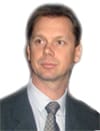In front of 700 people last week, Philippe de Villiers, MPF (Movement for France) presidential candidate, explained his program. To begin with, Jérôme Rivière, the UMP deputy from the 1st district of the Alpes-Maritimes, spoke for twenty minutes, explaining why he stood alongside Philippe de Villiers and why he became the national president of his support committee. He sharply criticized the UMP legislature, regretting not having passed the laws planned in the 2002 program and the double-speak, the one spoken to the people and that of the government, simultaneously stigmatizing the idea agreements between him and Christian Estrosi that became disagreements after the president of the General Council of the Alpes-Maritimes had discussions with the higher echelons of the UMP: “Enough with people giving speeches on the platforms here in Nice and another in Paris.”
Nice-Premium: Jérôme Rivière, you just hosted Philippe de Villiers in Nice. Your thoughts on this visit of a presidential candidate?
Jérôme Rivière: The people of Nice enthusiastically welcomed Philippe de Villiers. On the Promenade des Anglais on Tuesday, Philippe de Villiers saw how much the street, our street, supports him.
The rush of big days was there, with hands reaching out vigorously, frank and spontaneous smiles, and sincere words of encouragement flying about. Not a single criticism or disapproving gesture from anyone we met.
But his visit to Nice was also an opportunity to talk for a while with firefighters who approached him upon his arrival. These women and men, who are responsible for our safety against domestic or natural disasters and who risk their lives daily for us, felt downhearted. A few weeks ago, they were on strike. They came forward with legitimate requests regarding the dangers of their profession. We listened to them, and I believe they felt heard.
We also made time for an emotional meeting with the repatriated community and the harkis of the department. These men and women do not understand the attitude of presidential candidates who go to seek Algerian President Bouteflika’s blessing, hoping to garner votes from his presence on the other side of the Mediterranean, trampling on our history. Philippe de Villiers was clear: a material response must be given and the compensation issue closed once and for all. But it is essential to reaffirm the positive role of France overseas, which the majority has failed to see through to the end!
Before the big public meeting in the evening at Acropolis, we were able to have a working meeting with those who form the first enterprise of France: artisans, merchants, SMEs, and TPEs (The CAPEB, the UPA, the CNAMS, the CGAD, the UPE 06, the FNCA, all these professional organizations were present). They had much to say and are awaiting deep changes: suffocating social charges, stifling compulsory levies, an overload of administrative paperwork, a too complex labor code… Candidate Villiers’ proposals are precise and clear, and the productive exchange initiated with these professionals from the Azur region will continue.
NP: “Since I am UMP, I vote for De Villiers.” The candidate Villiers presented you like this. This might not be well received in high places, right?
JR: When I agreed to take on the presidency of the national support committee for Philippe de Villiers’ candidacy, in the context of a presidential election, political convictions must come before party directives.
As you know, I am neither a courtier nor a party man, but an elected official who speaks his mind plainly.
Moreover, I am far from the only UMP member making this choice. Remember that nearly a third of the members refused to endorse Nicolas Sarkozy as a candidate for the presidential election.
What is true is that, for the sake of transparency with voters, I do nothing secretly or surreptitiously. It seems to me that this is the condition for a worthy democratic debate. After all, the only ones who can choose are the voters.
NP: Will you be a legislative candidate under the MPF label?
JR: I will certainly be a candidate in the legislative elections.
The issue of labels does not arise today. Remember, in the previous legislature in my district, Charles Ehrmann, whom I was the deputy for, was elected as a UDF deputy, he then became DL (Liberal Democracy) to finish his term as UMP… French political life is not static. Examples can be multiplied in all constituencies.
At the time of the elections, after the presidential election results, the political situation in France will be clarified for five years.
NP: If I say?
Ségolène Royal: Compassion, undoubtedly, but no concrete proposals to get our country out of the rut it’s stuck in.
Marie-Georges Buffet: Ideas that may seem generous but are disconnected from the economic realities of our country.
Nicolas Sarkozy: He tells us that with him everything will become possible. But when everything is possible, it means nothing is chosen. Yet, the first quality of a statesman is his ability to make choices.
François Bayrou: A fairly accurate analysis of the dysfunctions of French society. Inadequate responses because consensus cannot be the form of government for a great country. It is not possible to agree on everything.
Jean-Marie Le Pen: Courageous proposals, a clear and consistent political stance, but marred by unacceptable slips. He has only positioned his action in protest, but politics is action.
NP: What do you think about the current polls and generally?
JR: As at the time of the referendum on the constitutional treaty, they reflect the percentage of airtime.
We will see the figures change significantly from March 20, the date on which the actual candidates for the presidential election will be known.
I will conclude with a smile. About the polls, look at the difficulties your site faced regarding the one you had set up about the municipal elections in Nice… Why would it be different on a national level?


